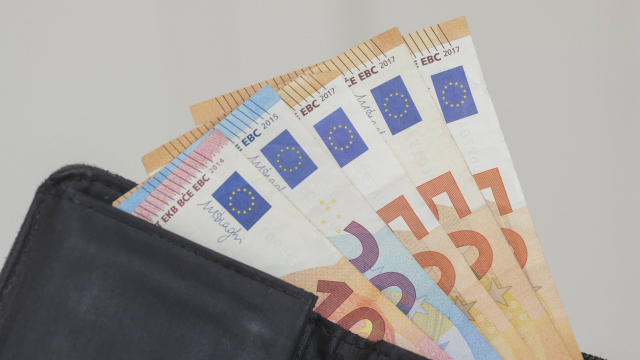One of the small Latvian commercial banks, Baltic International Bank (BIB), received two bad gifts in one day about a year ago, during Christmastime. Police broke through the bank's main door in a search on suspicion of laundering and the regulator decided to close the bank, believing it was already in or would be in financial trouble.
The bank had been hanging on the edge of a cliff for several years. Supervisors were waiting for fresh cash to be injected into the facility. The bank allegedly even managed to find new investors from Switzerland and the United Arab Emirates. However, the bank's plans to draft one of them as the largest shareholder did not receive approval from the European Central Bank and the Latvian regulator. Among the various homework that had to be done, the bank and the shareholders did not provide documents proving the origin of the funds injected into the bank.
BIB closed in December 2022 and began winding up proceedings. Lawyer Olavs Cers was appointed as liquidator, who has now concluded that there was too big of a hole in the bank's safe deposit to pay off all debts.
The bank's liquidation plan prepared late last year, according to De Facto, shows that the bank's assets were worth almost €138.7 million at the end of 2022. At the time of commencement of liquidation last spring, assets decreased to 104.2 million, while in autumn after the revaluation of major real estate and cancellation of various liabilities, assets were worth only 76.3 million euros – half of the initial estimate.
Several bank-owned buildings and securities worth €20 million have been arrested as a result of a Police investigation. In other criminal proceedings, the bank's clients' financial resources worth 15.4 million have been arrested.
Four of the five largest bank loans issued in Spain, Bulgaria, Ukraine and Russia do not make a profit. But a much more tangible minus comes from properties owned directly by the bank itself - it is estimated they may have lost value of €21.9 million.
Given that the available funds in the bank turned out to be less than expected, the liquidator called on those who owe the bank to refuse some of the money. However, by the deadline set late last year, the necessary response was not achieved. Creditors were not prepared to voluntarily forgo at least €39 million. Therefore, the bank faces insolvency.
Cers, the bank's liquidator, declined an interview, instead commenting on the website of his law firm. “The total amount of assets seized and the significant difference between asset balance sheet and market values underpin the conclusion that the assets of the credit institution are not sufficient to fully satisfy the claims of all creditors in liquidation proceedings,” Cers wrote.
BIB is not the first bank to turn out to have less money after closing than was reflected in the accounts. Again, this situation raises doubts as to whether banks' assets have been properly valued in Latvia.
“At this time, these assets have been revalued by the liquidator in the context of non-continuation. Of course, looking also from today's circumstances, when the real estate market is on a declining trend, it can be seen that the market values of its real estate properties are significantly different from those originally taken for operating purposes,” said Santa Purgaile, Deputy President of the Latvian central bank (Bank of Latvia).
A year ago, as President of the Financial and Capital Market Commission, Purgaile considered BIB's assets to be sufficiently valued, which has now proved to be an erroneous estimate.
“Also for us, the Bank of Latvia, this sharp difference in values has raised questions that we address directly to real estate valuers, because these estimates are very different, [..]” says Purgaile.
When asked if previous valuations of the bank's assets had been artificially inflated, she recalls that for a year the bank's activities have been investigated in criminal proceedings, details of which cannot be commented on because of the investigation.
What exactly is being investigated in BIB activity is known approximately. Last year, the Parliamentary Inquiry Committee was set up in the Saeima, one of the tasks of which was to deal with the circumstances of BIB closure. In a letter to the Committee, the Prosecutor General's Office revealed in early 2023 that the investigation was into money laundering on a large scale, using accounts and investing financial resources in the bank's share capital. However, in order not to influence criminal matters, the Saeima Committee did not evaluate specific banks at all.
The bank's largest shareholder Valerijs Belokons did not respond to the call for an interview.





























